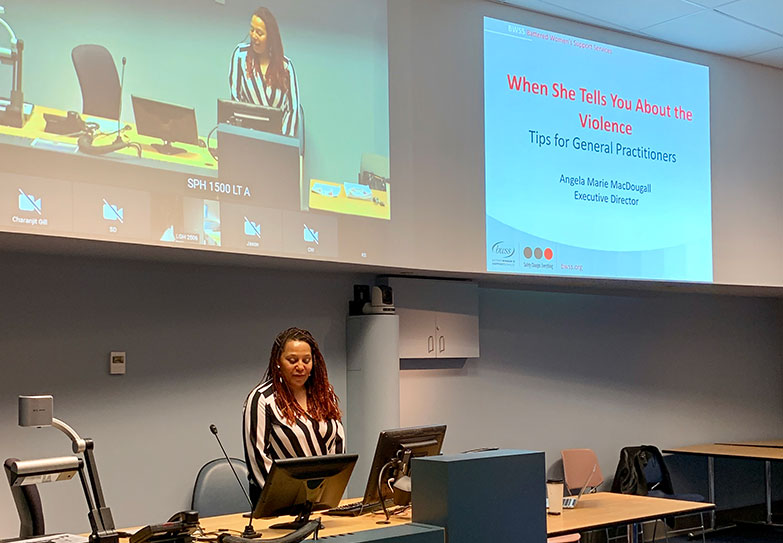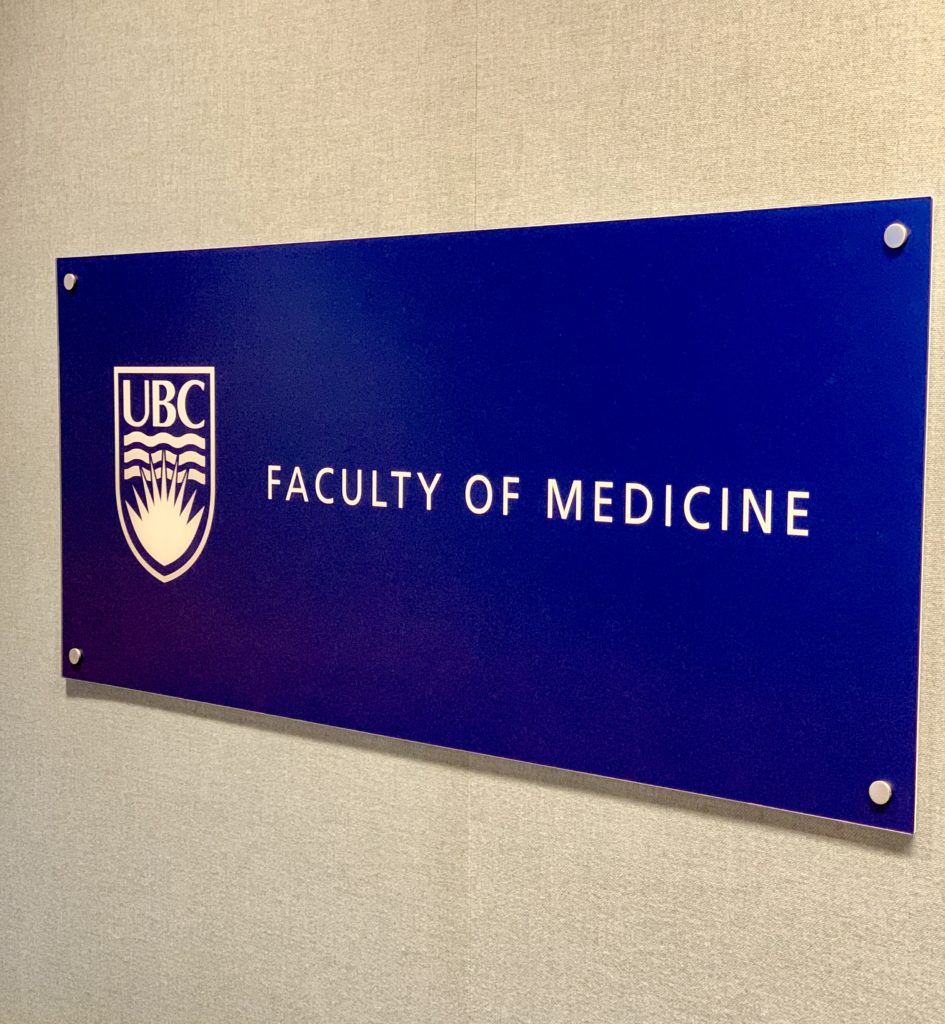
When She Tells You About the Violence: Training for Family Doctors
1 in 5 women make their first disclosure of violence in an intimate relationship to their general practitioner.
In B.C., an average of 232 women per year are admitted to a B.C. hospital for severe injuries from intimate partner violence.
 Violence against girls and women is often not included in discussions of women’s health; it is considered a social issue, not a medical issue. So how do doctors ask their patient if she is experiencing violence from a partner or family member? For general practitioners, this is a tough question to ask, especially if they aren’t sure where to direct their patient to get support.
Violence against girls and women is often not included in discussions of women’s health; it is considered a social issue, not a medical issue. So how do doctors ask their patient if she is experiencing violence from a partner or family member? For general practitioners, this is a tough question to ask, especially if they aren’t sure where to direct their patient to get support.
February 21, 2019 Angela Marie MacDougall, Executive Director at BWSS presented to second year residents at University of British Columbia Medical School on best practices when supporting victims of abuse and violence in their work. By bridging the gap and giving general practitioners more resources in understanding the dynamics of power and control in violence, assessing risks, safety planning and alleviating women’s isolation by connecting them to support. Because the data shows that when women are connected to support organizations, they and their children are safer.
If you are a general practitioner in B.C. and would like more information on how best to support patients who experience violence click here to download the Violence Training for Family Doctors resource kit.





I am a victim of domestic violence i am now looking fot housing and ny dr wrote letter about my situation
Other than that i have not received support or help from.anyone i am bow severy disabled and impoverishesdue to my experience